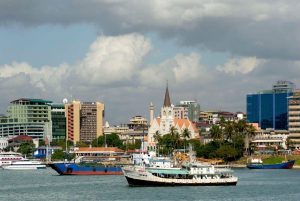As most of the airlines resume international flights this month, it will take at least four more years for the passenger traffic to get back to the pre-Covid level, a year later than what had earlier been projected.
International Air Transport Association (IATA) says in a recently updated global passenger forecast that the recovery in traffic has been slower than expected.
The association says, however that recovery on the short haul is expected to happen faster than the long-haul flights, in what will be a major boost for the domestic market.
“Global passenger traffic (revenue passenger kilometers (RPKs) will not return to pre-COVID-19 levels until 2024, a year later than previously projected,” said IATA.
The global passenger numbers (enplanements), the association says, are expected to decline by 55 per cent compared to 2019, worse than the April forecast of 46 per cent.
Kenya Airways resumed domestic flights mid last month with the international ones starting last Saturday.
The carrier has forecasted passenger numbers to remain at half of its capacity for the remainder of the year after the airline resumed international flights to 30 destinations out of its 56 at pre-Covid.
In an interview with Reuters, KQ chief executive officer Allan Kilavuka said 2020 for them is like a lost year because of anticipated low demand, which at some point is as low as 25 per cent.
IATA has attributed the slow recovery of passenger traffic to a number of factors. One is the slow virus containment in the US and other developed nations, which account for the largest share of the air traffic.
Although developed economies outside of the US have been largely successful in containing the spread of the virus, the aviation agency says renewed outbreaks have occurred in these economies, and in China.
“Furthermore, there is little sign of virus containment in many important emerging economies, which in combination with the US, represent around 40 per cent of global air travel markets. Their continued closure, particularly to international travel, is a significant drag on recovery,” the agency said.
Secondly, IATA reckons that corporate travel budgets are expected to be very constrained as companies continue to be under financial pressure even as the economy improves.
In addition, while historically GDP growth and air travel have been highly correlated, the agency says surveys suggest this link has weakened, particularly with regard to business travel, as video conferencing appears to have made significant inroads as a substitute for in-person meetings.
IATA also noted that consumer confidence is weak in the wake of concerns over jobs and fears of contracting the virus, which will further suppress the numbers.
“While pent-up demand exists for visiting friends and relatives and leisure travel, consumer confidence is weak in the face of concerns over job security and rising unemployment, as well as risks of catching Covid-19,” it said.
A survey conducted by IATA on June showed that some 55 per cent of respondents don’t plan to travel in 2020.
IATA says African airlines’ traffic sank 98.1 per cent in June, with little changed from a 98.6per cent demand drop in May. Capacity contracted 84.5per cent, and load factor dived 62.1 per centage points to just 8.9per cent of seats filled, lowest among regions.
The association says scientific advances in fighting Covid-19 including development of a successful vaccine, could allow a faster recovery.
Major international passenger airlines resumed the Nairobi routes last Saturday as Kenya opened up the airspace after the country eased containment measures brought about by Covid-19 pandemic.
The airlines, which include British Airways, KLM, Qatar Airways and Air France have announced resumption of normal services between their regional hubs and Jomo Kenyatta International Airport this August.
These airlines had pulled out of Nairobi late March when Kenya closed its airspace for international passenger flights after the country reported the first case of Coronavirus.
The British carrier, which resumed flights on August 1, will operate four flights weekly on Tuesday, Thursday, Saturday and Sunday.
The carrier has cut on frequencies as initially it would have multiple flights in a day.
The Amsterdam based KLM resumed operations on Nairobi route on August 3 with four flights initially having cut its usual frequencies to Nairobi.
The Covid-19 pandemic has depressed the global aviation industry, with African carriers alone expected to lose $6 billion this year in revenue.



